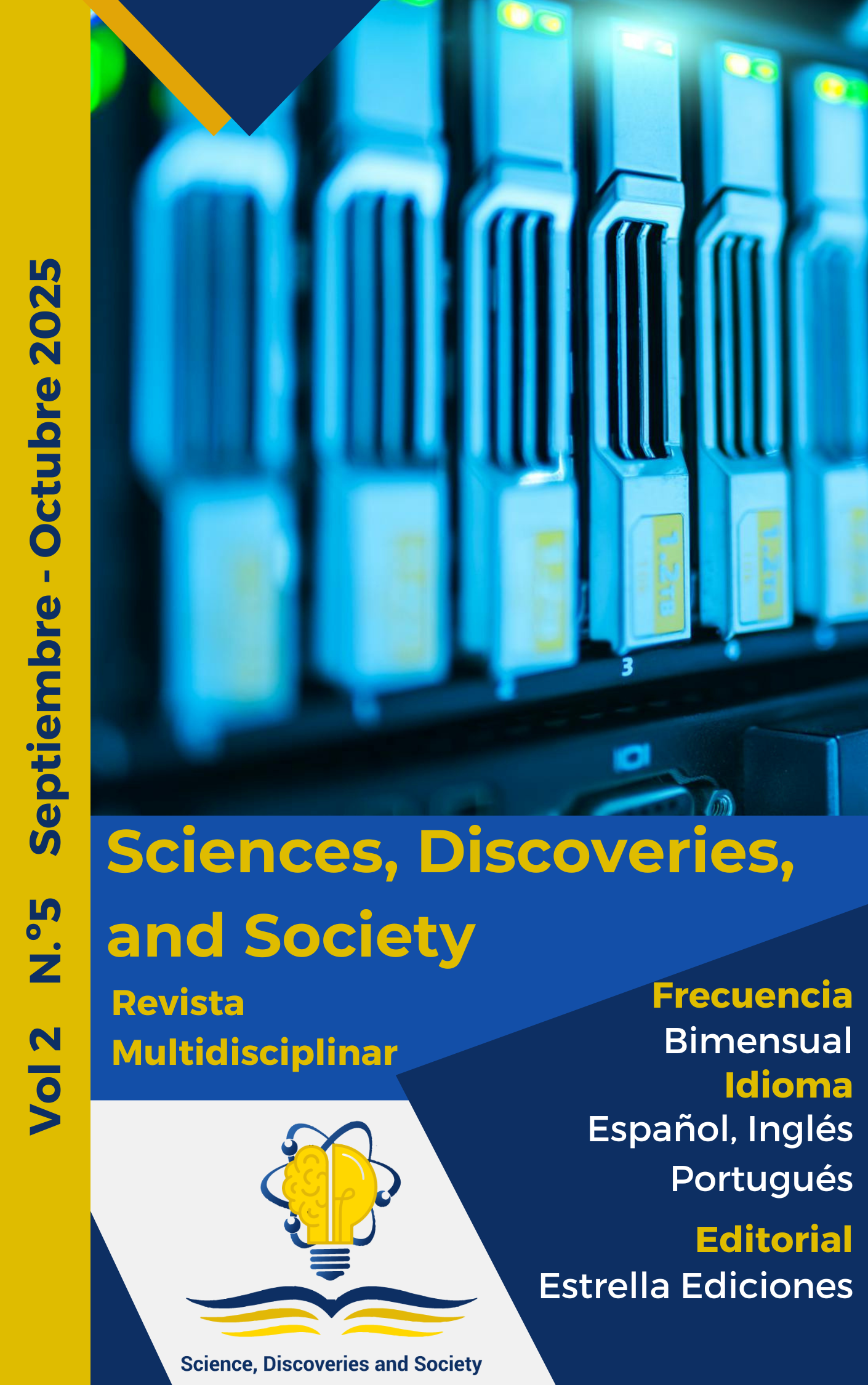The Impact of Tourism in Ecuador: A Comparative Analysis Pre and Post-Pandemic, with an Emphasis on Insecurity (2019-2025)
DOI:
https://doi.org/10.71068/w4tmhv40Keywords:
Tourism, local development, insecurity, Ecuador, COVID-19Abstract
This study evaluates the impact of tourism on local development in Ecuador, analyzing the effects of the COVID-19 pandemic and, crucially, the role of rising insecurity. Using a descriptive-analytical design with secondary data from sources such as the Ministry of Tourism (MINTUR), the World Travel & Tourism Council (WTTC), and the World Tourism Organization (UNWTO), key economic and social indicators from the pre-pandemic period (2019) are compared with the post-pandemic period (2023-2025). The results indicate that while domestic tourism has shown remarkable resilience, with a projected growth of 23.5% in 2025, international tourism has experienced a 40% decline, particularly affecting the Coast (52% drop in international arrivals) and Highlands (25% drop). Insecurity, evidenced by a 430% increase in homicides between 2019 and 2024, acts as a perceptual barrier that limits local development by reducing income, employment, and social cohesion. The Galápagos and Amazon regions show less vulnerability due to their geographical isolation and the type of tourism they offer. The study concludes that insecurity represents a significant threat to the sustainability of the tourism sector and local development in Ecuador, requiring the urgent implementation of comprehensive security policies, regional promotion, and the strengthening of community-based tourism to mitigate its adverse effects.
References
Ahotec. (2024). Report on the impact of insecurity on Ecuadorian tourism. Ecuadorian Hotel Federation.
Butler, R. W. (1999). Sustainable tourism: A state-of-the-art review. Tourism Geographies, 1(1), 7-25. https://doi.org/10.1080/14616689908721291
Hall, C. M., & Page, S. J. (2014). The geography of tourism and recreation: Environment, place and space. Routledge.
Honey, M. (2019). The business of ecotourism. Island Press.
Instituto Costarricense de Turismo. (2021). National Policy for Ecotourism and Sustainable Community Tourism. https://www.ict.go.cr/es/component/users?view=login
Instituto Guatemalteco de Turismo. (2018). Guide to community tourism experiences in Guatemala. INGUAT. https://www.facebook.com/clavellinasdenebajtv/videos/viral-la-delegada-del-inguat-en-izabal-recomienda-de-que-si-conduce-no-maneje-pa/956532895911356/
Kenya Tourism Federation. (2019). Tourism Crisis Council: A successful public-private partnership model. [Based on KTF reports and press releases].
Korstanje, M., & Clayton, A. (2012). The perception of risk and terrorism in tourism: A review of the literature. Journal of Travel & Tourism Marketing, 29(1), 12-25. https://doi.org/10.1080/10548408.2012.630386
Ministerio de Comercio Exterior y Turismo (MINCETUR). (2023). Strategic Plan for Safe Tourism Corridors. Government of Peru. https://www.gob.pe/mincetur
Ministerio de Turismo de Ecuador. (2019). Yearbook of Tourist Statistics. MINTUR.
Ministerio de Turismo de Ecuador. (2023). Report on domestic and external tourism 2022-2023. MINTUR.
Ministerio de Turismo de Ecuador. (2025). Tourism Projections 2025. MINTUR.
Policía Nacional de Colombia. (2023). Citizen Security and Coexistence Strategy in Tourist Destinations. https://www.policia.gov.co/jefatura-nacional-del-servicio-de-policia/dipro/turismo
Scheyvens, R., & Biddulph, R. (2018). Inclusive tourism development. Tourism Geographies, 20(4), 589-609. https://doi.org/10.1080/14616688.2017.1387811
Secretaría de Turismo. (2022). Security is reinforced in Quintana Roo with the deployment of the National Guard. Government of Mexico. https://www.gob.mx/sectur
Tarlow, P. (2014). Tourism security: Strategies for effectively managing travel risk and safety. Elsevier.
Tunisian National Tourist Office (ONTT). (2016). Digital campaign "I Love Tunisia" to restore image. [Based on ONTT press releases and reports].
UN Tourism. (2023). Tourism Doing Business – Investing in Ecuador. https://pre13webunwto.s3.eu-west-1.amazonaws.com/s3fs-public/2025-04/tourism-doing-businessecuador-en.pdf
World Travel & Tourism Council (WTTC). (2024). Economic Impact Report: Ecuador. https://wttc.org/research/economic-impact
Downloads
Published
Issue
Section
License
Copyright (c) 2025 Julio Samuel Murillo Laballe (Autor/a)

This work is licensed under a Creative Commons Attribution 4.0 International License.
Los artículos publicados en la revista se distribuyen bajo la licencia Creative Commons Atribución 4.0 Internacional (CC BY 4.0). Esta licencia permite a terceros descargar, copiar, distribuir, adaptar y reutilizar una obra, incluso con fines comerciales, siempre que se otorgue el crédito adecuado al autor original.



